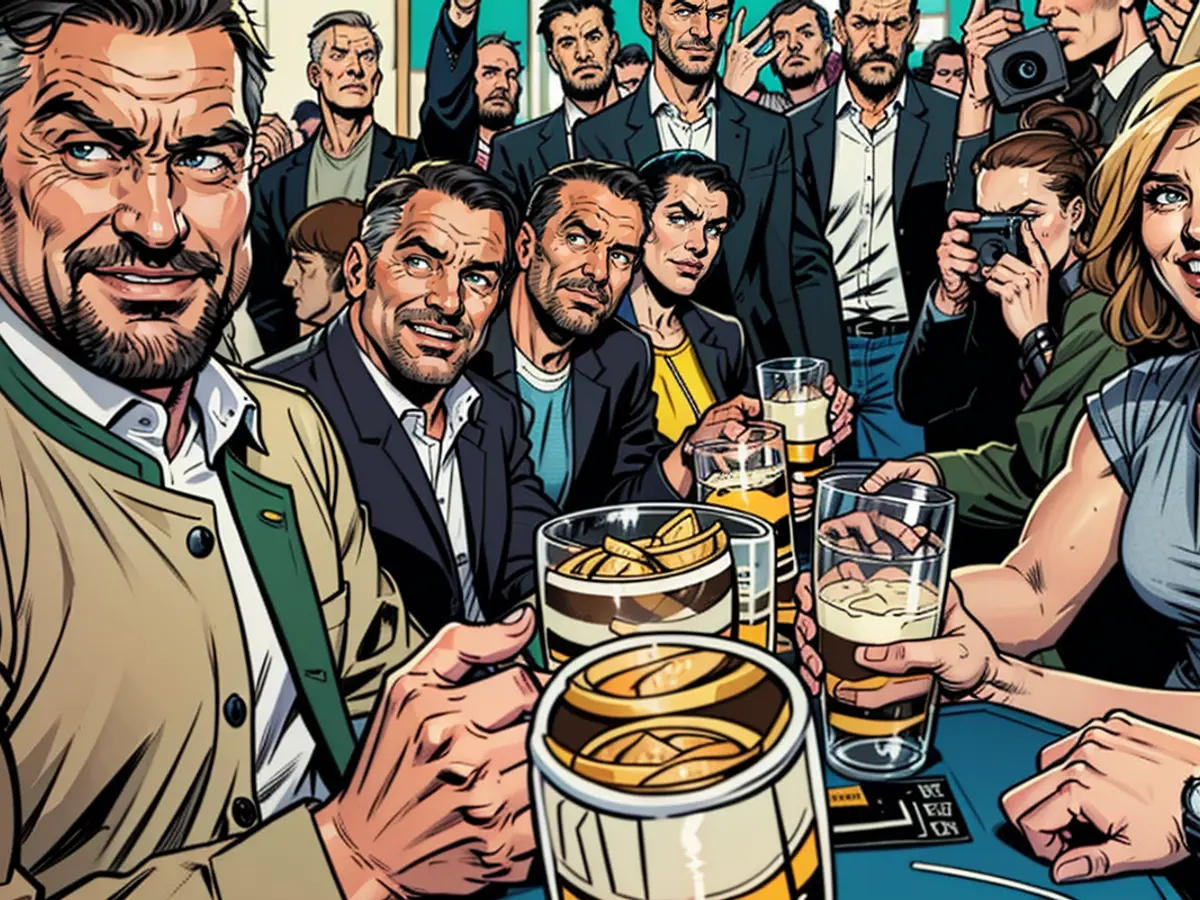- The weather-related illuminations in the K-enigma:
Rain pours down, thunder roars, and lightning flashes excessively over the Gillafest grounds located in the Lower Bavarian town of Abensberg. Emergency services are dispatched to nearby areas to drain cellars as severe weather continues, while the political climate worsens beneath the tents of what appears to be the nation's largest ongoing political breakfast event.
Bavaria's Minister-President Markus Söder holds his first public appearance following state elections in East Germany under the white and blue tent and confirms his intention to run for Union Chancellor. "The office of Minister-President is my greatest joy. But I won't shy away from assuming responsibility for our nation," Söder says.
No dirty politics this time
CSU leader Söder announces an end to intra-Union mudslinging, referring to the politically heated disputes that occurred in 2021 with Armin Laschet. "Back then, it was simply the wrong choice," Söder explains. This time, the C-candidate will be decided cooperatively, according to Söder. Merz and Söder form an alliance, the Bavarian leader assures. In the CSU, it's said that Merz now holds all the leverage.
Previously, various CDU politicians attempted to interpret the election results in Saxony and Thuringia, where the extreme right-wing AfD gained significant ground, as a boost for their party leader Merz. Hesse's Minister-President Boris Rhein voiced his support in Lower Bavaria, applauding Söder for keeping the Union united.
Lessons from the elections in the East?
The other speakers' contributions pale in comparison to Söder's stance on the C-candidate, despite stark election results in the East that left many feeling gloomy. Green Party politician Anton Hofreiter appealed to "honorable conservatives" to help defend democracy. "Despite disagreements on other issues: Honorable conservatives are crucial in the fight for democracy, and we should value their contributions."
The AfD holds a different interpretation of honor: insults like "mindless," "political leeches," "criminals," and "madmen" are directed at their opponents with enthusiasm from their supporters. Austrian guest speaker Gerald Grosz and others mock their opponents' language and appearance during their speeches for a thunderous response from the crowd.
If not for the unusually stormy weather, Gillamoos 2024 would have proceeded as usual. Söder criticizes Anton Hofreiter and the one being criticized retaliates against the AfD as "traitors." The SPD discusses the value of work within a half-empty festival tent, while the AfD celebrates their electoral victory with passionate words. Hubert Aiwanger, the "speaker record holder" at Gillamoos, takes advantage of the moment to express his aspirations for a role in federal government.
Rain showers from above mainly drenched the AfD. Unlike other parties, the party did not utilize any tents for their meeting but instead set up outdoors in Abensberg's castle garden. Standing in the rain while serving as election winners in Saxony and Thuringia made for a powerful image.
No party, not even those in the East, expresses any desire to work with the AfD. At least Markus Söder cautions against the long-term effects of this approach, suggesting that emergency coalitions ultimately lead to the AfD bolstering its destructive populist politics, as they can continue to challenge the establishment from the opposition. "Extremists need time," Söder concludes.
Gillamoos 2024 would have been a different spectacle if not for the heavy rain, as Hubert Aiwanger, known as the "speaker record holder" at Gillamoos, was eager to discuss his aspirations for a federal role.
Despite the challenging weather conditions, the AfD chose to hold their meeting outside in Abensberg's castle garden, making a powerful statement as the election winners in Saxony and Thuringia.








